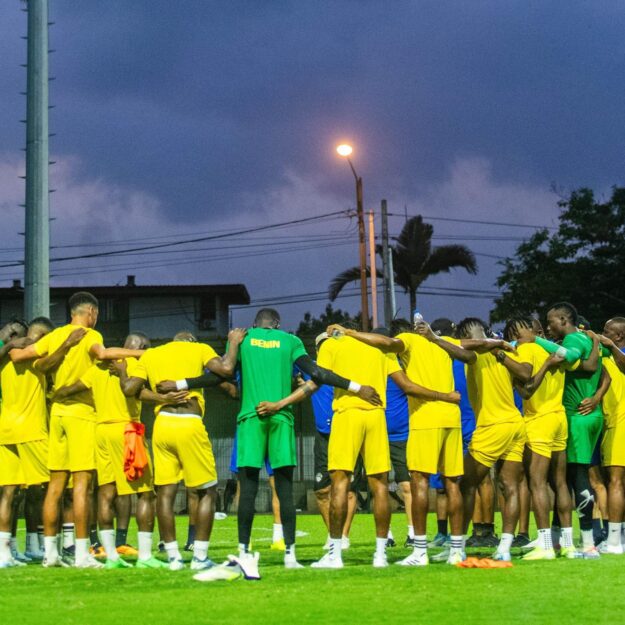
Moses Emorinken, Abuja
The Minister of Health, Dr. Osagie Ehanire, has confirmed that as of 28th of January this year, 258 cases of Lassa fever have been confirmed with death toll at 41, reported from 19 states. Also, majority of the cases are from Ebonyi, Edo and Ondo states.
He explained that though the disease is endemic in the country due to our particular ecological profile, the responsibility of curbing its spread is the responsibility of everyone – government, NGOs, development partners etc.
Ehanire, who made this known on Tuesday in a press briefing in Abuja, said that “Lassa fever is a disease that is indigenous to our country because it occurs every year, particularly in dry season. This year there has been an increase of Lassa fever reporter across the country. As of the 28th of January 2020, 258 confirmed cases and 41 deaths have been reported in 19 states, with majority of the cases from Ebonyi, Edo and Ondo states.
“Given the tropical climate in Nigeria and the abundance of the disease vectors in our environment, the high risk of infectious diseases like Lassa fever is high all over the country.
“Despite the increase in confirmed cases, the overall case fatality rate for 2020 has been just about 15 percent compared to the same in 2019 which was 20 percent and few years ago the case fatality rate was over 30 percent”.
About what the government is doing to control and manage the spread of the Lassa fever virus, Ehanire explained that The Nigeria Centre for Disease Control (NCDC) has activated a National Emergency Operations Centre (EOC), to coordinate responses to the increasing number of Lassa fever cases across the country.
According to him, “The National EOC, which was constituted on the 24th of January 2020, includes representatives from the National Emergency Management Agency (NEMA), Federal Ministry of Agriculture and Rural Development, Federal Ministry of Environment, World Health Organization, UNICEF, US Centers for Disease Control, and other partners.
“While we are gradually moving towards achieving a single digit fatality rate, we will continue to support response activities like surveillance and contact tracing in affected states through the deployment of rapid response teams for improved case management and outcomes. The rapid response teams have so far been deployed to five states – Ebonyi, Enugu, Kano, Borno and Ondo states.
“It is important for health workers to maintain a high index of suspicion and practice universal health precautions to protect themselves from infections by using surgical masks, gloves, laboratory coats and aprons. Further information on Lassa fever can be obtained from the following numbers – 08099555577”.
Concerning the number of health workers that are affected by the Lassa fever, the Director of prevention, programs and knowledge management of the Nigeria Centre for Disease Control (NCDC), Dr. Joshua Obasanya, said: “6 healthcare workers were affected – 5 were confirmed and one probable, meaning we are not able to isolate the virus. We lost two of the health workers”.
Concerning the novel coronavirus, the Minister of Health, explained that it was necessary to do a press briefing in order to counter the misinformation and disinformation circulating social media and other forms of conversations and reports.
He explained that the Federal Ministry of Health is working with relevant Ministries and Agencies to strengthen surveillance, preparedness and response to public health emergencies at our various points of entry.
According to him, “There is high-level inter-ministerial consultation towards setting up a multisectoral committee to scale up surveillance and vigilance to detect suspicious cases and ensure containment at all points.
“The committee shall comprise of critical stakeholders in the health, security, aviation and transport sectors and also include Development Partners. Bearing in mind that air travelers, rather than land border crossers, are more likely carriers of this type of virus, attention will focus largely on our five international airports.
“The Ministry is finalizing plans to engage state authorities in Enugu, Lagos, Kano, Rivers States and FCT, to enhance surveillance, preparedness and response activities in their domains. We shall meet with each of them one-on-one.
“The on-going surveillance strategy at Air Points of Entry involves automatic body temperature screening with thermal scanners, which detect any passengers with fever, and focused visual observation of passengers, who may be showing signs and symptoms of being unwell. Where any passenger is observed to meet the slightest index of suspicion, he will be politely invited to step aside for a chat, where the travel history is obtained; this is to determine where the suspect case has travelled to and from in the last two months”.
He explained that the risk factor to coronavirus depends largely on air travel volume. Nigeria has a moderate risk factor because we do not have the huge air travel volume that other high risks countries have.
“The first suspect case in Africa is said to be in Ivory Coast and is not a Chinese but a student who came back when she heard of the outbreak and quickly bought ticket and left, but arrived the country with symptoms that look like Coronavirus. But it hasn’t been confirmed to my knowledge.
Commenting on whether the country has the capacity to test and contain the coronavirus in the event that it happens, Dr. Ehanire said: “We have very good laboratories here and our laboratory assets are increasing. The fact is that if you want to test for a particular disease, you have to have a reagent for it. The reagents we have do not cover this new coronavirus yet, so the samples will be taken and sent to a place. The WHO will advise all countries where to send their samples to for testing. Government has been providing resources needed as we request.
According to the director of Port Health services of the Nigeria Centre for Disease Control (NCDC), Dr. Alex Okoh, “For those cases that do not manifest at the ports of entry, this is where it becomes very important to engage the states. The states are expected to ensure mobilization of their population, sensitize them and make them aware so that should any member of the community show symptoms, they can take the appropriate steps and go to health facilities.
Also, Dr. Obasanya, said: “About the Chinese holiday, we have had a meeting with the Chinese Embassy and have agreed that we share information in case somebody is identified in Nigeria. This way we are able to trace it back to China and all the contacts will also be traced. We will also be working with Chinese companies and employees. The Chinese embassy has also sent advisories to Chinese employees that they should delay coming back to Nigeria”.
You may be interested

Orban’s Lyon Face Provisional Relegation To Ligue 2 Amid Financial Woes
Webby - November 15, 2024Olympique Lyon the club of Nigerian striker Gift Orban, have been handed a provisional Ligue 1 relegation by theDNCG who…

Ghana Miss Out On AFCON 2025 Qualification After Draw With Angola
Webby - November 15, 2024Black Stars of Ghana’s hopes of qualifying for next year’s AFCON was ended after they played a 1-1 draw away…

‘It Was A Fair Result’ — Troost-Ekong Reacts To Super Eagles Stalemate Vs Benin Republic
Webby - November 15, 2024Super Eagles captain William Troost-Ekong claimed the Super Eagles deserved a point from their 2025 Africa Cup of Nations qualifying…

















![American Pastor, David Wilson Seen Eating The Box Of Woman Who Isn’t His Wife [Video]](https://onlinenigeria.com/wp-content/uploads/2019/10/american-pastor-david-wilson-seen-eating-the-box-of-woman-who-isnt-his-wife-video-150x150.jpg)










Leave a Comment